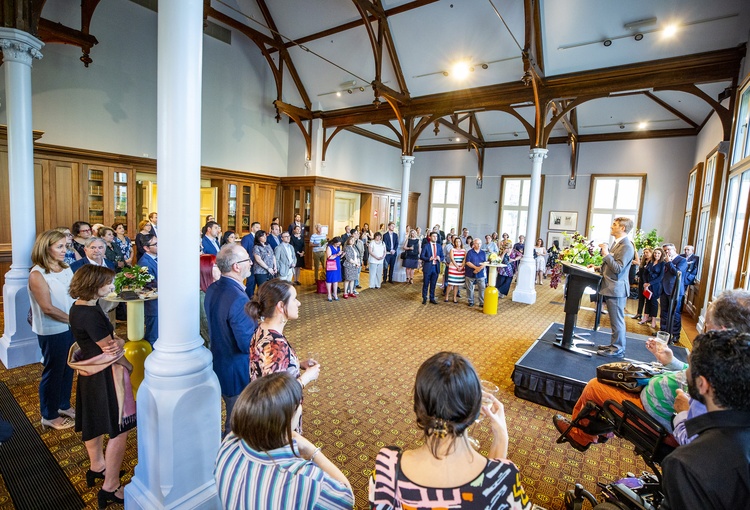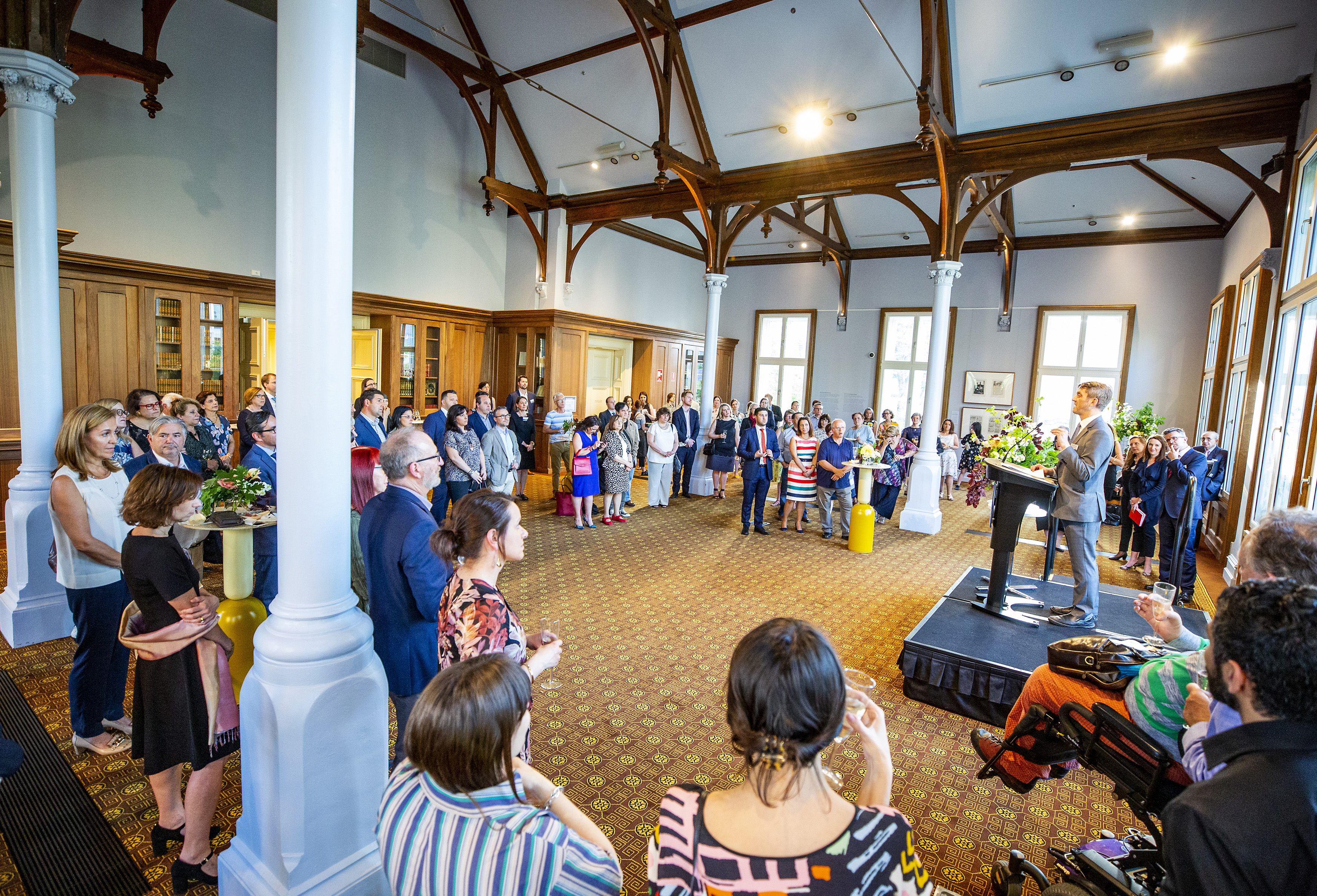Over the past six decades, the program has had great success in bringing Italian language and culture to all Australians – regardless of their background – and fostering and maintaining italianità in Australia.
On Thursday, October 24, the University of Melbourne officially launched the Italian Studies Trust Fund, a permanent endowment which ensures that Italian language, culture and history are preserved and promoted into the future.
Open to all donations, the Trust will support scholarships, fellowships, community education and public engagement, as well as additional teaching positions and an expansion of activities.
The aim is to encourage future generations of students and teachers to engage with Italian language and culture and the rich history of Italian Studies within the Australian context.
“Aside from supporting teaching and research, the Italian Studies Trust Fund intends to maintain and expand the activities within the department and the community,” said Andrea Rizzi, Cassamarca associate professor and convenor of the Italian Studies program.
Prof. Rizzi said the initiative would allow the university to forge stronger ties with the community by funding collaborations with local organisations, schools and teachers.
Italian Studies alumni and members of the Italian community gathered in the library of the University of Melbourne’s Old Quad during the Week of Italian Language in the World to celebrate the launch of the Trust.
The evening’s formalities began with a speech by Professor Russell Goulbourne, dean of the Faculty of Arts.
“The study of languages is absolutely essential to the Faculty of Arts,” he said.
“At Melbourne we are proud of our alumni with Italian ancestry, of our links with the community in Carlton and beyond, and of our Italian Studies program.”
Guests then heard from John Hajek, renowned linguist and professor in Italian Studies.
In his speech, Prof. Hajek delved into the rich history of Italian Studies at the University of Melbourne, beginning with the founding professor of the department – an Englishman who had developed a passion for all things Italian as an Allied soldier in the Belpaese during World War II.
“In 1959, Colin McCormick arrived to take up his new position at the University of Melbourne,” Prof. Hajek said.
“His appointment marked a critical turning point for Italian studies in Victoria, particularly within a tertiary context.
“It was the culmination of decades of pressure from the Italian community and supportive Italophiles in Victoria who wanted Italian to be taught in schools and universities across the state.”
Hajek explained that, in the beginning, Italian was taught as part of the French Studies program, until 1963, when McCormick spearheaded the foundation of the Italian Studies program.
Attendees were then treated to readings of an excerpt from Dante Alighieri’s Convivio (The Banquet), first in English by talented actor Lexi Sekuless, then in Italian by Antonella Cavallini, lecturer in Italian Studies.
“Questo mio volgare fu congiugnitore de li miei generanti, che con esso parlavano, sì come ’l fuoco è disponitore del ferro al fabbro che fa lo coltello; per che manifesto è lui essere concorso a la mia generazione, e così essere alcuna cagione del mio essere. Ancora, questo mio volgare fu introduttore di me ne la via di scienza, che è ultima perfezione, in quanto con esso io entrai ne lo latino e con esso mi fu mostrato: lo quale latino poi mi fu via a più innanzi andare. E così è palese, e per me conosciuto, esso essere stato a me grandissimo benefattore.”
(This vernacular of mine was what brought my parents together, for they conversed in it, just as it is the fire that prepares the iron for the smith who makes the knife; and so it is evident that it has contributed to my generation, and so was one cause of my being. Moreover, this vernacular of mine was what led me into the path of knowledge which is our ultimate perfection, since through it I entered upon Latin and through its agency Latin was taught to me, which then became my path to further progress. So it is evident that it has been a very great benefactor to me, and this I acknowledge.)
In that moment, as the words of Dante floated across the room, it became as clear as ever why the study of Italian language and culture must be protected, and why the new Trust is so valuable.
Following the recital, a familiar voice took to the microphone: that of Magica Fossati, executive producer of SBS Radio’s Italian program.
Having worked for the program since 2004, Fossati has become a voice of the Italian community in Australia and is more or less a one-woman institution herself.
Over the years, Fossati has forged strong ties with the University of Melbourne and its Italian Studies program, working at the university for a time and collaborating with Italian students on projects such as the production of podcasts which are then broadcast on her program.
Another prominent figure within the Italian community also made a speech on the night and showed his support for the initiative: The Hon. Gaetano (Tony) Pagone QC, Commissioner to the Royal Commission into Aged Care Quality and Safety and a former judge of the Federal Court of Australia and the Supreme Court of Victoria.
Also present on the evening was noted chef and Arts alumnus Stefano De Pieri, who designed an exquisite menu which showcased all that Italian cuisine has to offer, from mushroom arancini to chicken saltimbocca.
Having studied politics and Italian at the University of Melbourne in the 1970s, De Pieri has fond memories of both his peers and professors, among them McCormick.
“It would be a shame if the Italian Studies program were no longer offered due to changes within the university,” he said.
From teachers and businessmen to judges and chefs, the turnout on the night showed just how important Italian language and culture are to so many people, all united by the same cause: to ensure that la dolce lingua is spoken and celebrated for many more years to come.
For more information on the history of Italian Studies at the University of Melbourne, and the Italian Studies Trust Fund, check out this month’s edition of In classe, published on Thursday, October 24.












